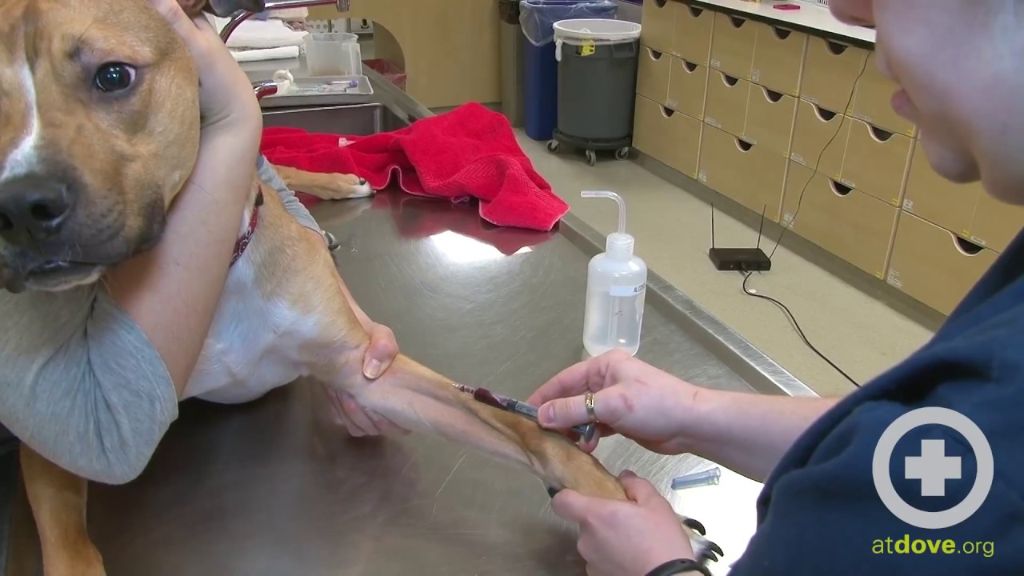What is Dog Aspirin?
Dog aspirin contains the same active ingredient as human aspirin – acetylsalicylic acid (source: Canine Aspirin). However, dog aspirin is formulated specifically for canine use, with dosages and delivery methods designed for dogs.
The most common uses of dog aspirin are for treating pain, inflammation, arthritis, and fever in dogs (source: Aspirin for Dogs). While human aspirin tablets can technically be given to dogs, the dosage has to be carefully calculated based on the dog’s weight. Dog aspirin provides the medication in pre-measured doses that are easier and safer to administer.
Is a Prescription Needed for Dog Aspirin?
In most cases, no prescription is needed from a veterinarian to purchase dog aspirin over-the-counter. There are some exceptions depending on the specific brand or formulation.
Human aspirin is not recommended for dogs, as they do not metabolize it as well as humans. For this reason, dog-specific aspirin formulations are available OTC without a prescription at many pharmacies and pet stores. Common brands include Bufferin Aspirin for Dogs, Ascriptin Aspirin for Dogs, and Pet aspirin.

These formulations are made with the proper dosage for a dog’s weight and physiology. They contain much lower doses than a regular adult human aspirin. Some coated tablets also help prevent stomach irritation in dogs. These can be purchased without a veterinary prescription in most cases.
There are a few exceptions. Some veterinarian-prescribed brands like Rimadyl or carprofen require an exam and prescription. Compounded aspirin formulas also need a prescription. Overall though, most OTC aspirin made for dogs does not require a prescription from your vet.
Dosage Guidelines for Dog Aspirin
Dosage is based on the dog’s weight. The general guideline is 5-10 mg per pound every 12 hours (https://towncountryvetftdodgeia.com/faqs/what-is-the-dose-for-aspirin-in-a-dog/). For example, an 80 pound dog would receive 400-800 mg every 12 hours. Common dosage guidelines are:
- 5-10 lbs: 1/2 to 1 baby aspirin (81 mg) every 12 hours
- 10-20 lbs: 1 baby aspirin every 12 hours
- 20-40 lbs: 1 1/2 to 2 baby aspirins every 12 hours
- 40-80 lbs: 2 to 4 baby aspirins every 12 hours
Dosage may vary based on specific circumstances, so it’s always best to consult your veterinarian before giving aspirin. Factors like other medical conditions and medications can affect the appropriate dosage for an individual dog.
Risks and Side Effects of Dog Aspirin
The most common side effects of giving aspirin to dogs are gastrointestinal issues like nausea, vomiting, and intestinal irritation or ulceration (bleeding in the stomach/intestines). These side effects are relatively rare when aspirin is given at the proper dosage. As noted by the AKC, side effects like loss of appetite, diarrhea, bleeding problems, seizures, coma and even death are possible but unlikely at appropriate doses.

According to VCA Animal Hospitals, the most common side effect is gastrointestinal irritation and bleeding, but this is rare when given as directed [1]. Puppies, pregnant or nursing dogs, and dogs with health conditions like kidney disease, liver disease, or clotting disorders may be at higher risk for side effects and complications from aspirin [2]. Still, when given as directed by a veterinarian, side effects are uncommon.
While aspirin is typically safe when used properly, it’s important to follow dosage guidelines and monitor your dog closely for any signs of side effects. Contact your vet immediately if you notice any vomiting, diarrhea, loss of appetite, weakness, or bleeding after giving your dog aspirin.
Interaction with Other Medications
Dog aspirin can interact with several types of medications, so it’s important to check with your vet before giving any new drugs or supplements while your dog is on aspirin therapy. Some types of drugs known to interact with aspirin include:
- Steroids like prednisone – Aspirin when combined with steroids can increase the risk of stomach ulcers and bleeding (1).
- Certain antibiotics like amoxicillin – Both aspirin and some antibiotics can cause stomach upset, so combining them may increase this risk (2).
- Diuretics or “water pills” – Using aspirin with diuretics can reduce their effectiveness and lead to kidney problems (3).
- ACE inhibitors like enalapril – ACE inhibitors and aspirin together can damage kidneys (3).
- Anti-seizure drugs like phenobarbital – Aspirin may increase phenobarbital levels in the blood (3).
If your dog is on any chronic medications or supplements, talk to your vet before starting aspirin. Make sure to disclose all drugs and herbs your dog takes. Your vet can advise if aspirin is appropriate and safe given your dog’s health status and other medications.
Sources:
(1) https://vcahospitals.com/know-your-pet/aspirin
(2) https://veterinarypartner.vin.com/doc/?id=4951432&pid=19239
(3) https://www.akc.org/expert-advice/health/aspirin-for-dogs/
When to Give Dog Aspirin
Dog aspirin can be used to provide temporary pain relief and reduce inflammation in certain situations, such as:
- Minor injuries like sprains or strains
- Post-operative pain after a surgery or procedure
- Arthritis flare-ups
- Hip dysplasia
- Other short-term inflammatory conditions
The anti-inflammatory effects of aspirin can help relieve swelling, stiffness, and discomfort associated with these conditions. However, aspirin should only be used short-term and not as a regular long-term treatment for chronic pain in dogs without guidance from a veterinarian. Long-term use of aspirin can lead to potential side effects in dogs like stomach ulcers and kidney or liver damage [1]. Your vet can recommend if and when aspirin may be appropriate for your dog and provide dosing instructions tailored to your dog’s specific needs.
How to Give Dog Aspirin
There are a few different ways to administer aspirin to dogs:

- Tablets can be given directly, hidden in food/treats, or crushed and mixed into food. Make sure your dog eats all of the medication.
- Liquid formulations can be administered directly into the mouth using an oral syringe or dropper. Tilt your dog’s head back and administer the medication into the corner of their mouth.
- If you crush tablets, you can mix the powder into a small amount of wet food, peanut butter, or broth to mask the taste.
- Always follow your veterinarian’s instructions on how to properly give your dog aspirin.
It’s important to find an administration method that works for you and your dog. Some dogs don’t mind taking pills or liquids orally, while others will spit them out. Work with your vet to determine the best option.
Monitoring Your Dog on Aspirin
It’s important to monitor your dog closely after starting them on aspirin therapy. Watch for any changes like reduced appetite, vomiting, diarrhea, lethargy or other signs of stomach upset. These can indicate issues like gastrointestinal bleeding or ulcers. Notify your veterinarian right away if you notice any of these signs.
Periodic bloodwork is also recommended while your dog is on aspirin. This allows your vet to check for signs of internal bleeding or other side effects. Blood tests can look for changes in red blood cell count, iron levels, or kidney and liver enzymes that may be impacted by aspirin use. Monitoring with bloodwork helps ensure the dose is safe and appropriate for your individual dog.

According to VCA Animal Hospitals, “If needed, your veterinarian may monitor for bleeding or anemia.” They recommend contacting your vet if you notice any concerning side effects from aspirin in your dog (https://vcahospitals.com/know-your-pet/aspirin). With close supervision and monitoring, aspirin can be used safely in dogs, but being vigilant for side effects is important.
When to Call the Vet
Dog owners should monitor their dog closely when giving aspirin and contact their veterinarian if any concerning signs develop. If unusual side effects occur, such as vomiting, diarrhea or lethargy, discontinue use and call your vet (source). Do not exceed the recommended dosage for your dog’s weight without first consulting with your veterinarian. Exceeding the proper dosage can result in aspirin toxicity (source).
For dogs needing chronic aspirin therapy, follow up with your veterinarian regularly to monitor the health of your dog’s liver and kidneys. Long-term use of aspirin may cause damage to these organs. Your vet will likely recommend periodic blood work to check for any problems (source). With close veterinary supervision, aspirin can be used safely in dogs, but be sure to call your vet if any concerns arise.
Summary
Dog aspirin can provide temporary pain relief for your canine companion, but it does come with risks if used improperly or without veterinary guidance. While aspirin is readily available over-the-counter for human use, pet owners should not give their dog aspirin without first consulting their veterinarian.
It’s important to work closely with your vet to determine the appropriate dosage for your specific dog based on weight and medical history. Your vet can also advise you on potential side effects and interactions with other medications your dog may be taking.
Your vet should monitor your dog while on a regimen of aspirin to ensure the dosage remains effective without causing harm. Never exceed the prescribed dosage or frequency. Contact your vet immediately if you notice any concerning symptoms such as vomiting, diarrhea, or lethargy after administering aspirin.
While aspirin can temporarily alleviate pain and inflammation, it does carry risks such as stomach, liver and kidney damage. It’s critical to follow your vet’s guidance to give your dog the benefits of aspirin therapy while avoiding the potential dangers. With proper dosage and monitoring, short-term aspirin use can safely provide pain relief for your dog under your vet’s supervision.